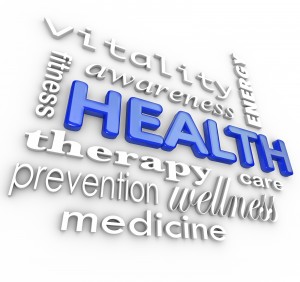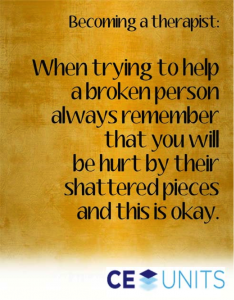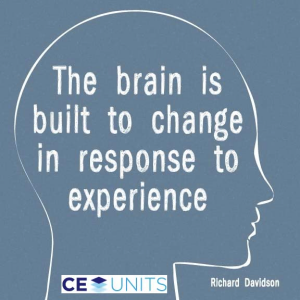Handy List of Words for Healthcare Workers
April 20th, 2024
As a healthcare worker, you are required to keep case notes. It’s important to maintain detailed records through case documentation. It allows you to create successful outcomes for your clients. Always make sure your case notes are useful. Do your best to make sure they provide insight and value. Analyze your notes and see if they would be useful to another case worker. You want to make sure you give an accurate picture of the client’s history, as well as their current situation.
It’s important to use language that is non-judgmental. Neutral language is the most common form of case notes in social work. It’s also helpful if you avoid making assumptions and remember to stick to the concrete facts. You should always indicate clearly when a comment is an observation. It is imperative you make it clear when you are recording the client’s own words by using quotation marks.
Notes are important in this type of work because the courts can subpoena records and other reports; you have to be careful about what you say about your respective client. Write your case notes immediately after you have spoken with a client. Here’s a handy list of words that many social workers use while writing up their case notes:
- Acknowledged
Actively Listened
Addressed
Advised
Advocated
Asked
Assisted
Challenging
Checked In
Clarified
Collaborated
Commended
Confronted
Conducted
Conveyed
Crisis Intervention
Developed
Educated
Empathized
Empowered
Encouraged
Ensured
Established
Explained
Explored
Expressed
Facilitated
Focusing/Refocusing
Framing/Reframing
Goal (setting)
Development/Goal Setting
Guided
Highlighted
Honoring
Identified
Information Giving/Gathering
Informed
Interacted
Interpreted
Joined
Modeled
Observed
Physical Activity
Played
Praised
Presented
Probed
Problem Solving
Prompted
Rapport-building
Recapped
Recommended
Redirected
Reflected
Reflective Listening
Reframed
Reinforced
Reiterated
Reminded
Reviewed
Role-played
Social Skills Practice
Suggested
Supported
Teaching/Lecturing
Urge
National Recovery Month 2021
September 15th, 2021
Recovery is for everyone, because it benefits everyone. We applaud National Recovery Month for highlighting the diversity of faces united by this experience. As we know gender, socioeconomic group or cultural background, does not exclude anyone from mental health and substance abuse challenges.
Worth watching: Personal and professional stories that inspire
Our own biases of what the recovery experience should like, can actually impede it. Every individual has their own unique experience often shaped by external factors like the access to care they have, their immediate support system and community, as well as their own life, like their religion, sexual-orientation and cultural beliefs.
How can our professional approach impact recovery?
Our strength is our diversity. Accepting that recovery journeys can look different, and treating clients with compassion, empathy, and giving respect to their own lived experiences, can dramatically improve their outcome.
As mental health professionals it can be a challenge to know how to best cater to all our clients. What is considered normative now, can be very different from 10 or even 5 years ago. Even using language and terminology that reflects the society and the individual can advance their recovery greatly.
Free resources
If you are looking for ways to participate, visit the Faces of Recovery website for their Free Tool Kit.
Recovery and recovery support
September 12th, 2021
With recovery support systems changing in their approach as we all adapt to working online, the pillars of recovery remain the same.
Vital aspects of addiction recovery
- Health — managing mental health or symptoms – like substance abuse.
- Home— having a safe environment to live.
- Purpose— being independent and living with purpose, such as study or work commitments, that offer healthy routine and structure.
- Community— having a social life whether it be family or friends; or a more formal recovery community, that offer support and care.
What courses does CE Units offer to professionals who work in recovery?
There are several pathways that cater to mental health professionals who work with addiction in mental health care. Our courses are created by qualified professionals and delivered online for convenience.
Whether you are a social worker, psychologist, addiction consultant or mental health care nurse, our courses are set at different levels for different professions.
Some of our most popular courses to support mental health recovery are:
2. Mindfulness
Why choose CE Units courses?
7 Great Psychology Quotes to Live By
January 15th, 2015
There are quotes and then there are quotes that really sink in and make you think. A good quote will make you think in a new way, push you to make a change and usually originate from great minds. In the spirit of great quotes, we’ve pulled together the best psychology quotes of all time from the best psychiatrists and greatest thinkers of all time for you to enjoy.
1. Meeting of Two Personalities Quote
2. Becoming a Therapist
3. The brain is built to change
4. What screws us up most in life
5) Love is the only way
6) I have discovered the value of psychology and psychiatry
7) Nobody can hurt me
Risks Associated with Alcohol and Drug Use in Older Adulthood
November 11th, 2014
-by Megan Ferguson, Contributing Writer
Prescription medications, over-the-counter medical products, and natural and alternative medicines are widely used by older adults in North America. However, although medications play an important role in healthcare and disease management, there use comes with many risks. Researchers project a 3-fold increase in substance abuse in adults aged 50 or older by 2020. Consequently, an estimated 5 million older adults will require treatment by counselors and drug addiction professionals for substance abuse problems.
Substance use and misuse place older adults at risk for a variety of possible clinical dangers, contributing to increased use of healthcare resources and a need for age-specific interventions. In addition, older adults who abuse alcohol have an increased morbidity rate, emergency room visits and admission in hospitals. However, problems also exist in identifying older people with alcohol related problems, as the symptoms of alcohol harm may be mistaken for other health conditions common in late adulthood such as falling, infections, or digestion problems. Approximately 15% of individuals 65 years of age and older living in the community are at risk for alcohol abuse or dependence and 50% of individuals living in personal care homes drink moderately or are dependent on alcohol. However, only 90% of individuals who are at risk for alcohol abuse or dependence do not receive alcohol treatment services. Therefore, the selective screening approach also suggests that older people are rarely asked about their alcohol consumption.
Adults are more at risk
Additionally, older adults are at a higher risk for prescription drug addiction due to multiple factors. Firstly, increased access to prescription medication through advertisement and less stigma attached to prescription drug use allows older individuals to use prescription medications with decreased barriers. Secondly, older adults consumer more prescription and over-the-counter medications, than other age groups and are more likely to use the medication inappropriately. Thirdly, the current baby boomers in society have an increased life expectancy and have transformed into a “quick fix” society.
Risk of illicit drugs
Illicit drugs may also be increasing in a small percentage in older adults. The National Survey on Drug Use and Health reported that illicit drug use by adults 55 to 59 has increased from 1.9% in 2002 to 5.0% in 2008, which depicts the potential for growth in illicit drug use in the baby boomer cohort. However, illicit drug use in older adults is typically linked to individuals who are lifelong drug users.
If you would like additional information regarding addiction in older adulthood, CEUnits.com offers a course in Substance Use, Misuse, and Abuse Among Older Adults (Informatiion and statistics in the article are drawn from this course).







